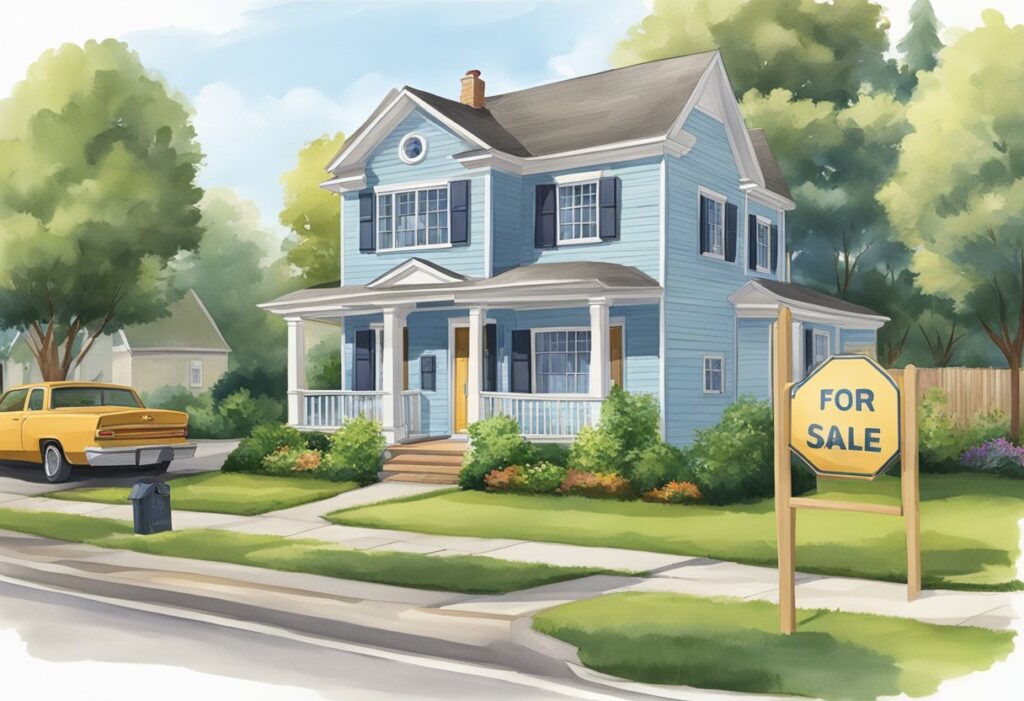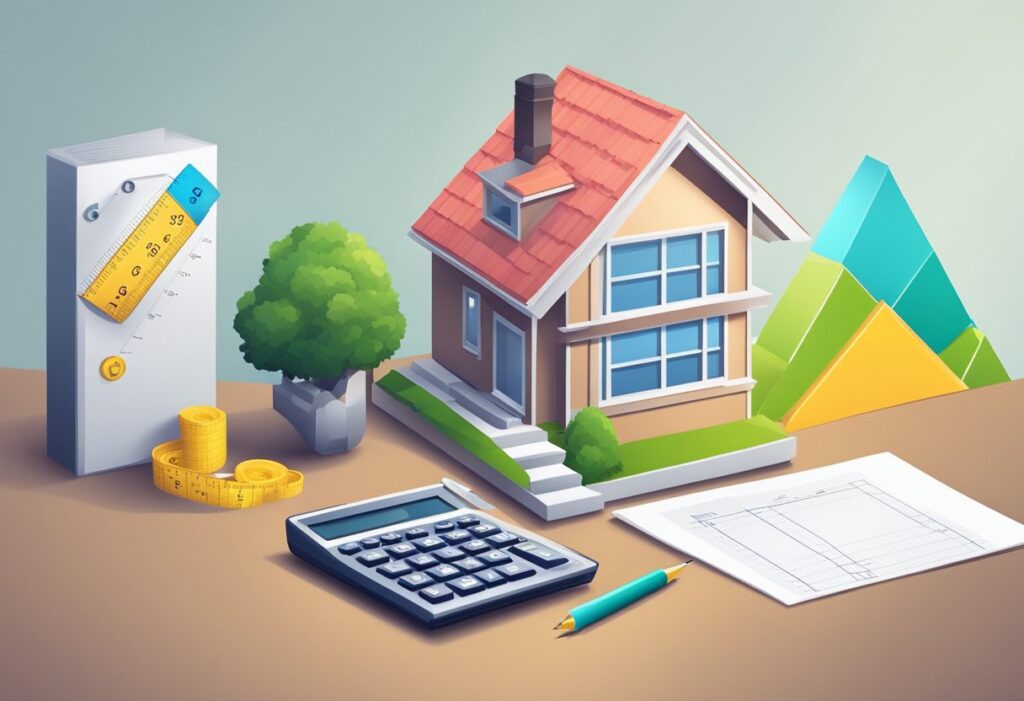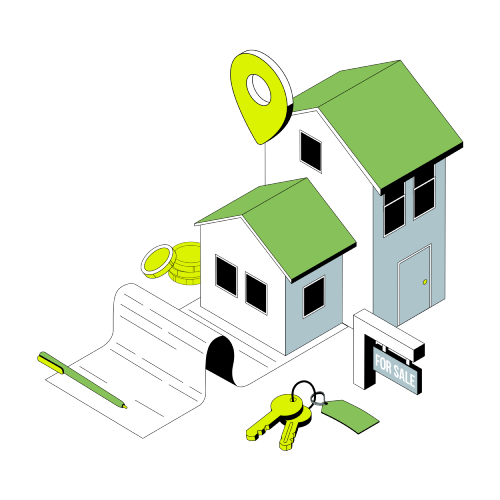As a homeowner or potential real estate investor, understanding home appreciation is crucial. Learning to answer the question “how much does a house appreciate per year” will pay dividends in the long term. Home appreciation refers to how much a property increases in value over time. It’s influenced by a variety of factors including the local housing market, economic conditions, and home improvements. The annual appreciation rate is the percentage increase in a home’s value each year, which can fluctuate widely depending on the location and the aforementioned factors.
In the Canadian housing market, which has seen significant growth over past decades, the annual appreciation rate for homes has become a focal point for both buyers and sellers. The typical appreciation rate can provide insights into the long-term value of real estate investments. While the national average can offer a general idea, it’s essential to consider that rates may vary considerably by province and even at a city level.
How Much Does a House Appreciate Per Year: Understanding Home Appreciation

When Best Edmonton Realtor discusses home appreciation, I’m referring to the increase in the value of a home over time. This is usually expressed as an annual percentage rate and is influenced by various factors including market conditions and home improvements.
Factors Affecting Appreciation
Several factors contribute to the appreciation of a home’s value. These include:
Location: A prime location can lead to higher demand and thus increase a property’s value. This involves proximity to amenities, quality of local schools, and overall desirability of the neighborhood.
Supply and Demand: The real estate market operates on supply and demand. If there is a high demand for homes but not enough supply, property values in the area tend to rise.
Real Estate Market Trends: National and local economic conditions can affect the appreciation rate. For example, if the economy is strong, people might feel more secure in investing in property, increasing demand and therefore coinciding with price increases.
Property-Specific Factors: The individual characteristics of a property, such as its condition, age, layout, and any renovations or upgrades, can also influence its appreciation rate.
Measuring Appreciation: Methods and Tools
I calculate home appreciation to understand how much a property’s value has gone up. Here are common methods and tools involved:
Appreciation Formula: A basic formula used is A = P × (1 + R/100)^n, where A is the value after n years, P is the purchase amount, R is the annual percentage rate of appreciation, and n is the number of years after the purchase.
Home Appreciation Calculator: Various online calculators can estimate future home values by using current value and an appreciation rate.
Market Value Comparison: I often compare the current market value of a home with the purchase price. For instance, if a house was bought at $200,000 and is now worth $225,000, the appreciation can be calculated as a percentage of the initial cost.
By considering these factors and utilizing these tools, I can develop a more comprehensive understanding of home appreciation and the potential value of a property over time.
Real Estate as an Investment

When it comes to building wealth, real estate investment stands out for its potential to offer steady appreciation and equity growth. Through leveraging and regular market performance, the value of homes often rises over time, which can provide solid returns on investment.
Comparing with Other Investment Types
Real estate ownership differs significantly from other forms of investment such as stocks, bonds, or savings accounts. Stocks can be highly volatile, and bonds usually offer lower returns. A savings account provides me with liquidity but yields minimal interest. Real estate, however, typically combines the potential for appreciation with functional utility – that is, having a place to live. Additionally, while real estate has its cycles, it has historically appreciated at an average rate that often outpaces inflation. This makes it a particularly attractive investment vehicle for me, as it may serve both as a hedge against inflation and as a means to grow my net worth over time.
Building Equity Through Homeownership
I view homeownership as a foundational strategy for accumulating wealth. Equity, which represents the portion of the home I truly ‘own,’ increases in two key ways: as I pay down my mortgage and as the value of my home appreciates over time. Purchasing a house for $300,000 and assuming an annual appreciation rate of 4%, the simple calculation for its value in 30 years would be:
Future Value = Current Value (1 + Annual Appreciation Rate)^30
Future Value} = $300,000 (1 + 0.04)^30
This compound growth doesn’t just reflect a theoretical number; it translates into tangible, real-world wealth as my property value increases. As both a buyer and a seller, I must remain cognizant of the market dynamics, understanding that the real estate market has its ebbs and flows which can affect both the investment value and the equity I am able to build. Over time, my goal is to maximize return on investment by leveraging the equity from my property to further my investment objectives, being mindful of the original purchase price and the market conditions when I decide to sell.
Market Dynamics and Trends

In examining the appreciation of house prices per year, it’s critical to understand the interplay of market dynamics like interest rates and economic indicators, as well as trends within the housing market itself.
Interest Rates and Economic Indicators
When discussing interest rates, they stand as a significant economic lever that impacts my purchasing power and borrowing costs. The Bank of Canada’s rate decisions can either stimulate borrowing and demand by lowering rates or cool off an overheated market by raising them. For instance, historically, a rise in interest rates may lead to a cooling in housing demand, as was observed with the marginal downturn in prices near the end of 2023.
Economic indicators, such as GDP growth and employment figures, guide my understanding of the broader economy’s health. Strong economic growth tends to result in higher income levels and population growth, which can boost demand for housing. On the flip side, high affordability challenges, often stemming from stagnant wage growth compared to housing price increases, can dampen market conditions.
Housing Market Trends and Forecasts
Within the housing market trends, home prices are shaped by supply and demand forces, influenced by factors including local economic conditions and population growth. Analyzing historical data and forecasts, I can see that the Canadian housing market has experienced fluctuations. For example, in spite of a year-over-year decrease in home prices across some regions in 2023, predictive models suggest a rebound in subsequent years, with a modest increase forecasted by year-end 2024.
Market trends are also forward-looking; analysts have provided forecasts indicating a gradual rise in home prices, adapting to past accelerations and corrections. An understanding of these trends is essential for potential homeowners and investors to make informed decisions. Housing market predictions claim a gradual price increase, reflecting a stabilization after the significant run-up observed during the 2021-2023 period.
In dissecting these trends, I weigh the impacts of current market conditions against the backdrop of the economic landscape, staying abreast of how each movement and inflection point may signal changes in average yearly home appreciation.
Maximizing and Calculating Your Home’s Future Value

To ensure my home’s value appreciates effectively, I focus on strategic improvements and maintenance while accurately estimating future value. Here’s how I maximize and calculate my home’s future potential.
Strategies for Home Improvement and Maintenance
I understand that home improvements and maintenance are pivotal for increasing the future value of my house. I invest in enhancements that appeal to future buyers and maintain my home’s integrity. My approach includes:
- Prioritizing kitchen and bathroom renovations since these offer substantial returns.
- Investing in energy-efficient upgrades, which not only cut down utility bills but also attract eco-conscious buyers.
- Regularly maintaining the essentials, such as the roof, furnace, and structure, to avoid devaluation.
My budget always includes room for these ongoing expenses to ensure my home remains in top condition.
Estimating Future Home Value and Appreciation
To estimate my home’s future value and appreciation, I rely on available tools and a clear understanding of the real estate market. Here’s my method:
- I use a home value appreciation calculator, which requires the:
- Current home value
- Estimated annual appreciation rate
- I plug in conservative numbers to calculate a realistic appreciation based on historical data in my area.
- If considering a home equity loan, I factor in this future value to determine the loan amount while avoiding over-leveraging my assets.
By keeping tabs on the market trends and regularly reassessing my home’s value, I stay informed about my property’s appreciation potential.







